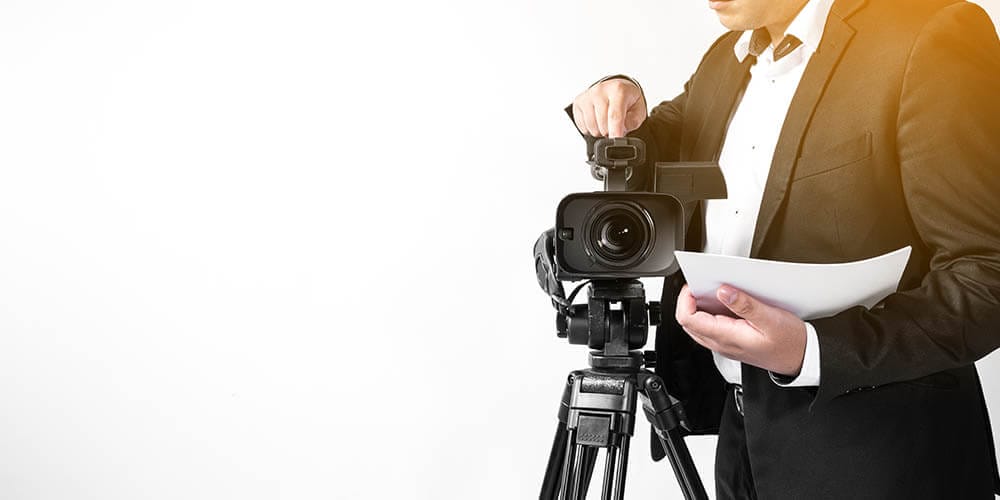Advanced Legal Videography for Arbitration Hearings.
Advanced Legal Videography for Arbitration Hearings.
Blog Article
The Role of Legal Videography in Depositions and Tests
Legal videography has arised as a crucial tool in both depositions and trials, offering a multifaceted method to recording witness testimonies. As legal specialists increasingly recognize its worth, it motivates a much deeper exam of how these aesthetic records can influence juror assumptions and trial outcomes.

Significance of Lawful Videography
Lawful videography plays an essential role in the documentation and discussion of depositions and trials. This customized area incorporates technological skills with legal expertise to create a trustworthy document of proceedings that can considerably affect situation end results. The appearance of legal videography improves the understanding of witness testament, allowing jurors and courts to observe not only the talked words yet also the demeanor, feelings, and body movement of the witnesses.
Furthermore, legal videography offers an unbiased account of occasions, reducing the possibility for misinterpretation that can occur with created transcripts alone. This visual paperwork functions as an essential tool during trial discussions, promoting a more clear and more convincing narrative for both complainants and offenders. The ability to replay video sections throughout court procedures enables legal teams to emphasize key factors, reinforcing their disagreements effectively.
The relevance of lawful videography prolongs beyond the court; it likewise plays an essential role in maintaining evidence for future recommendation, whether for charms or further lawsuit. Its combination into the legal process is important for making sure a fair and precise depiction of the truths, ultimately adding to the pursuit of justice.

Process of Legal Videography
While capturing the nuances of depositions and tests, the process of legal videography includes a number of important actions that guarantee high-quality, precise recordings. At first, a professional lawful videographer prepares by evaluating the case products and comprehending the certain requirements of the deposition or trial. This prep work includes acquainting themselves with the participants and the context, which aids in capturing pertinent details.
On the day of the recording, the videographer establishes the necessary equipment, which commonly consists of high-definition cameras, microphones, and correct illumination. Guaranteeing ideal angles and sound quality is essential, as it straight affects the efficiency of the recording. The videographer connects with attorneys and individuals to establish protocols, guaranteeing that everyone comprehends the recording procedure.
Throughout the deposition or trial, the videographer carefully tapes the procedures, paying close focus to both verbal and non-verbal hints. This includes catching the temperament and responses of witnesses and lawyers. After the session wraps up, the videographer might modify the footage for quality and conformity with lawful requirements, producing an end product that properly mirrors the proceedings for future reference and use in lawful contexts.
Benefits in Depositions
The incorporation of videography in depositions supplies countless advantages that enhance the total procedure of gathering evidence. One key advantage is the ability to catch witness testaments with visual and acoustic fidelity, offering a more precise representation of the witness's behavior, tone, and body language. This multidimensional strategy permits lawyers and juries to evaluate reliability more successfully than traditional written transcripts alone.
Additionally, videographed depositions act as an effective device for maintaining testament. Must a witness come to be not available for trial, their recorded deposition can be played in court, page making certain that their evidence remains accessible and pertinent. This element substantially decreases the danger of shedding essential information that might impact situation outcomes.

Lastly, videography improves the total professionalism and trust of the deposition procedure, instilling self-confidence in clients concerning the thoroughness of their lawful depiction (legal videography). By leveraging address technology, lawful professionals can dramatically improve the efficiency of depositions
Impact on Tests
In several trials, the combination of videography can considerably influence the discussion of proof and the court's assumption. Lawful videography catches witness testaments and crucial proof in a dynamic layout, permitting jurors to engage with the material on several degrees. This aesthetic component boosts the narration facet of a test, offering context and psychological resonance that conventional text-based evidence might do not have.
In addition, video clip recordings can function as powerful devices for impeachment throughout interrogation. When disparities emerge between a witness's previous declarations and their court testimony, video clip proof supplies an objective referral that can persuade jurors' opinions. This immediacy and clearness can strengthen the reliability of an event's story while concurrently undermining opposing disagreements.

Future Trends in Legal Videography
As we look towards the future of legal videography, a number of arising fads assure to improve its function within the courtroom. One substantial pattern is the assimilation of expert system (AI) in video clip analysis and modifying. AI can simplify the process of recognizing key moments in taped depositions, allowing lawyers to rapidly access appropriate web content, thereby boosting performance in case preparation.
Furthermore, the increase of virtual reality (VIRTUAL REALITY) and increased reality (AR) innovations is anticipated to transform exactly how jurors experience proof. legal videography. By submersing jurors in a simulated setting, these innovations can offer a more profound understanding of complex scenarios, causing even more informed considerations
In addition, the boosting need for remote depositions, increased by the COVID-19 pandemic, will likely continue. Legal videographers will require to adapt to new software program and systems to ensure top notch recordings in virtual setups.
Finally, the expanding emphasis on information safety and security will certainly demand more stringent methods for saving and sharing video evidence. As the lawful landscape progresses, legal videographers have to stay abreast of these patterns to preserve their relevance and performance in the judicial procedure.
Conclusion
In recap, lawful videography offers a critical feature in the judicial procedure, enhancing the integrity of depositions and trials. As modern technology continues to develop, legal videography is positioned to further transform its function within the legal landscape.
Report this page